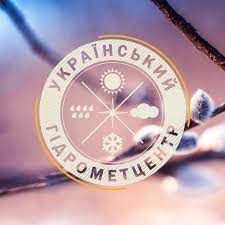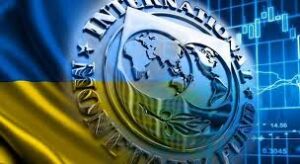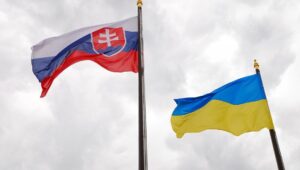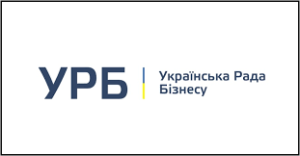
Significant rains are expected on Sunday, April 21, in Kyiv, Chernihiv, Cherkasy, at night and Odessa, Mykolayiv, Kirovograd and Sumy regions, reports Ukrhydrometcenter.
In the afternoon in the eastern, Cherkasy, Poltava, Dnipropetrovsk, Kherson and Zaporizhzhya regions thunderstorms, in the south-eastern and central regions wind gusts of 15-20 m/s. In this regard, in these areas declared I level of danger, yellow.
At night on April 21-22, April 21-22 in the western regions on the surface of the soil frost 0-3 ° (I level of danger, yellow).

The Steering Board of the Ukraine Investment Framework, set up by the EU on April 17 under the Ukraine Facility instrument, has allocated more than EUR1bn of funding to de-risk investments, mainly of small and medium-sized enterprises in Ukraine, through International Financial Institutions (IFIs) and banks, Ukraine’s Deputy Economy Minister Oleksiy Sobolev said.
“That is, this year, financing for SME development will be enough,” he said at Ukraine’s Future Summit in Brussels on April 18.
Sobolev called for more active trade and joint ventures with Ukrainian companies, because the above mechanism will provide leverage and additional guarantees.
“Thanks to the Ukraine Plan and Ukraine Facility, you will have available financing for business expansion in Ukraine, and what we need right now will be available. This year it will be available through Ukrainian banks and through MFIs: EBRD, EIB, IFC, KfW”, – said the Deputy Minister of Economy.
He specified that about 20 Ukrainian banks participate in these programs.
“So, in fact, you can apply to your Ukrainian bank, and he will provide additional financing to your companies,” – explained Sobolev.

The International Monetary Fund (IMF) has clarified the forecast of Ukraine’s GDP growth in 2024 under the World Economic Outlook (WEO): it expects it at the level of 3.2%, then during the third revision of the EFF Extended Fund Facility program in March estimated it in the range of 3-4%.
According to a publication on the Fund’s website on Tuesday, the economic growth forecast for 2025 was kept at 6.5%, up from 5.3% in 2023, according to the State Statistics Service.
The IMF also expects average annual inflation to slow to 6.4% this year from 12.9% last year and accelerate slightly to 7.6% in 2025.
Ukraine’s current account deficit forecast for this year and next year has been kept at the same level as in the third revision of the EFF program – 5.7% of GDP and 8.2% of GDP after 5.5% of GDP last year.
The Fund also reiterated expectations for unemployment to fall from 19.1% last year to 14.5% this year and 13.8% next year/
The IMF indicated that it forecast growth in the euro zone to accelerate to 0.8% this year and 1.5% next year after 0.4% last year, driven by the strong impact of Russia’s war against Ukraine.
“Stronger household consumption as the impact of the energy price shock fades and lower inflation supports real income growth is expected to support the recovery,” the Fund said, clarifying that the updated estimate is 0.1-0.2 percentage points (p.p.) worse than the previous estimate made in January.
Overall, the WEO said global economic growth, estimated at 3.2% in 2023, will continue at the same pace in 2024 and 2025. The forecast for 2024 is revised upward by 0.1pc from the January estimate.
“These growth rates are low by historical standards, driven by both short-term factors, such as continued high borrowing costs and the withdrawal of fiscal support, and the longer-term effects of the COVID-19 pandemic and Russia’s invasion of Ukraine, weak productivity growth, and increased geoeconomic fragmentation,” the IMF said.
Overall global inflation is expected to decline from an annual average of 6.8% in 2023 to 5.9% in 2024 and 4.5% in 2025, with advanced economies returning to their inflation targets sooner than emerging market and developing countries.
The report also notes that the forecast for global economic growth in five years’ time (at 3.1%) is the lowest in decades. ” An alarming change is the widening gap between many low-income countries and the rest of the world. The growth forecast for these economies has been revised downward and the inflation forecast has been raised,” the Fund states.
Worse still, the report notes that compared to most other regions, estimates of long-term damage for low-income developing countries, including some large countries, are revised upward, indicating that the poorest countries are still unable to recover from the pandemic and cost-of-living crisis.
Its experts attribute the relatively weak medium-term outlook to lower GDP per capita growth, due in part to persistent structural frictions preventing the movement of capital and labor to productive firms. And worsening growth prospects in China and other large emerging market economies, given their growing share in the global economy, will have a negative impact on the development prospects of their trading partners.
According to the IMF, the risks to the global economic outlook are currently balanced. “On the downside, new price spikes triggered by geopolitical tensions, including from the war in Ukraine and the conflict in Gaza and Israel, could, along with the resilience of core inflation while labor markets remain tight, lead to higher interest rate expectations and lower asset prices,” the WEO pointed out.
The fund added that geo-economic fragmentation could intensify, with higher barriers to the flow of goods, capital and people implying slower economic growth due to lower supply.
At the same time, it noted that artificial intelligence and stronger structural reforms than expected could boost productivity growth.
As the global economy approaches a soft landing, the priority for central banks in the short term is to ensure that inflation falls smoothly, avoiding both premature policy easing and excessive delay leading to lagging behind targets, the IMF also said.
“Multilateral cooperation is needed to limit the costs and risks associated with geoeconomic fragmentation and climate change, accelerate the transition to green energy, and facilitate debt restructuring,” the Fund concluded.
More details on macroeconomic indicators of Ukraine and the world, GDP of major countries and other economic topics were discussed in one of the video analysis of Experts club analytical center – https://youtu.be/w5fF_GYyrIc?si=Ymo-FlMFNGfLLdK-.
Subscribe to Experts club channel here: https://www.youtube.com/@ExpertsClub
EXPERTS CLUB, GDP GROWTH, IMF, MACROECONOMICS, UKRAINE, URAKIN

Ukraine and Slovakia intend to hold a joint Ukrainian-Slovak business forum in the fall of 2024, Ukrainian Prime Minister Denys Shmyhal said.
“We have invited representatives of Slovak business and government to the Recovery Conference to be held in Berlin in June this year. Based on its results, we plan to organize a joint Ukrainian-Slovak business forum in the fall,” Shmyhal said at a joint briefing with Slovak Prime Minister Robert Fico on Thursday.
According to him, the forum will clearly discuss the prospects for investing in the economies of the countries.

Business associations under the auspices of the Ukrainian Business Council are asking to finalize the government’s updated draft law on the Economic Security Bureau (#10439), as it leaves unaccounted for important proposals that jeopardize the reboot of the BEB.
“The most critical of the unaccounted proposals is the composition of the competitive commissions for the recertification of personnel and the mechanism for conducting the recertifications,” the 17 associations said in a statement circulated Thursday.
In their opinion, the detailed mechanism of re-certification should be set out in the draft law, and the commissions themselves should have a predominant voice of international experts who have an impeccable reputation and are well versed in the problems of law enforcement agencies.
Among other ignored proposals, the business pointed out the strengthening of the analytical function of the Bureau by providing free access for the BEB to existing state information systems and establishing criteria for the effectiveness of the work of the renewed BEB and their constant monitoring.
In addition, the appeal notes, it is important to limit access to positions in the BEB to persons with a dubious reputation based on the principle of reasonable doubt, given the small number of corruption cases that have resulted in convictions.
It is also crucial to retain in the final version of the draft the right to an overwhelming vote of international experts when electing the chairperson of the OIE, the document says.
In addition, in order to establish safeguards against unlawful pressure on business by law enforcement agencies, simultaneously with the reset of the BEB, the business requires amendments to the Code of Criminal Procedure regarding the introduction of standards of prosecutorial activity, limiting the powers of the National Police and the BEB in terms of assigning instructions to SBU operatives, ensuring the possibility of appealing to the investigating judge against any actions or inaction of the investigator, inquirer, prosecutor.
In addition, the business proposes to introduce a ban on reopening proceedings on the same grounds and seizure of material assets not specified in the ruling of the investigating judge, to establish responsible storage and immediate return to the owners of seized property after the decision, to select a reasonable level of bail and interim measures.
Among other requirements – to impose on investigating judges the obligation to verify compliance with the requirements of jurisdiction and to return the terms of pre-trial investigation and the procedure for their extension in actual criminal proceedings, except for serious and especially serious crimes, referred to the jurisdiction of NABU.
At the same time, the associations noted that the updated government bill on the BEB took into account a number of proposals of the business community, in particular, the election of applicants for the post of the head of the Bureau by a commission with a predominant vote of international experts, immediate recertification of all employees of the Bureau and audit one year and three years after the appointment of a new head.
According to the forecast of Yaroslav Zheleznyak, the first deputy of the Rada’s specialized committee, the bill #10439 will be put to a vote in the first reading as early as Thursday.
BILL, BUSINESS ASSOCIATION, ECONOMIC SECURITY BUREAU, UKRAINE, БЕБ

Business can cope with the problem of staff shortage in Ukraine by investing in technological products and process automation, says Ruslan Shostak, owner of Eva and Varus chains and president of TERWIN Corporation.
“I don’t see a big problem (with staff shortage). Yes, it exists, you can’t turn a blind eye to it, but according to statistics, not so many people left Ukraine. Our whole business was inefficient in terms of human resource utilization, which made us uncompetitive with similar businesses in Europe and the world. But there is one solution for this: money. We don’t have money to reconstruct our production facilities and enterprises. If we have money, software products, new robotic equipment, we will be able to solve this issue,” Shostak told Business Wisdom Summit in Kyiv on Wednesday.
According to Shostak, despite a slight outflow of customers, his business is showing growth: last year’s growth was almost 100% in online and 30% in retail. In addition, new logistics hubs are being built in Kyiv, Lviv, and Dnipro.
Shostak noted, while in Ukraine business development is slowed down due to the war and difficult economic situation, global business is undergoing changes and using new opportunities, including artificial intelligence.
“Now we are focusing on geopolitics, but in the next 20 years we will face global economic problems, change of specialties, professions. It is artificial intelligence that is driving the most powerful changes right now,” Shostak believes.
As reported, in October 2023, 17 companies managed by Shostak, which collectively employ 30 thousand people, merged into TERWIN (TERWIN). We are talking about Omega LLC, Rush, Tervin Group, Tixid, Tavria Hub, Instant, Formsite, Digamma, Milton Group, Saltora Plus, Firma Ariant, New Construction 2017, Altair D, Apex N, Aspect D, Lattero, Charitable Foundation Ruslan Shostak BU. The total assets of the corporation are estimated at $1.6 billion. The combined revenue of the companies reached $2 billion in the pre-war period and was expected to reach $1.7 billion in 2023.
In November 2023, Shostak and UkraineInvest CEO Serhiy Tsivkach signed a memorandum on further support of the project for the construction of logistics hubs in four regions of Ukraine (Odessa, Lviv, Dnipropetrovsk, Kyiv) with a total investment of more than $500 million.
BUSINESS, INVESTMENTS, staff shortage, TECHNOLOGIES, TERWIN Corporation, UKRAINE